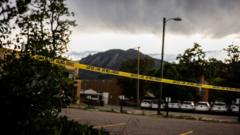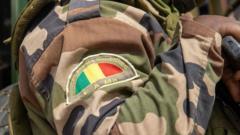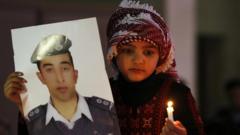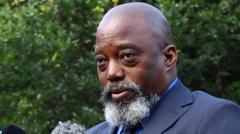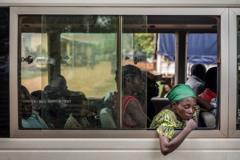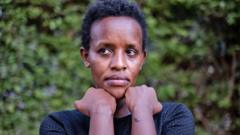Three Americans involved in a failed coup attempt in the Democratic Republic of Congo were repatriated to the U.S. to serve life sentences, following a diplomatic agreement. Their return is intertwined with U.S.-DR Congo discussions on mineral investments amidst other international justice considerations.
Three Americans Repatriated Following DR Congo Coup Convictions
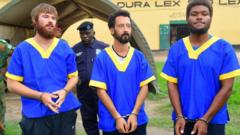
Three Americans Repatriated Following DR Congo Coup Convictions
After their death sentences were commuted, three American nationals convicted for a failed coup in the Democratic Republic of Congo are returned home to serve life sentences, reflecting ongoing diplomatic relations and mineral exploitation talks.
Three Americans, convicted for their participation in a botched coup attempt in the Democratic Republic of Congo (DRC) last year, have been sent back to the United States to continue serving their life sentences. Their sentences were initially death penalties, which were commuted just last week by a military court. This repatriation is a significant move, as it occurred during heightened diplomatic talks on the exploitation of mineral resources in the DRC.
According to the U.S. Department of State spokesperson Tammy Bruce, the three individuals—identified as Marcel Malanga Malu, Tylor Thomson, and Zalman Polun Benjamin—are now "in our custody." This transfer took place amidst ongoing negotiations regarding possible multi-billion dollar investments from the U.S. into the DRC's vast mineral wealth, particularly cobalt and coltan, critical for electronic devices and electric vehicle batteries.
The Americans were transported under strict adherence to legal protocols to N'Djili International Airport in Kinshasa, as confirmed by Congolese presidential spokesperson Tina Salama. The DRC government noted that this action is part of enhancing judicial diplomacy and fostering international cooperation regarding justice and human rights.
Alongside the three Americans, 37 individuals were sentenced to death by a military court last September. Jean-Jacques Wondo, a dual Congolese and Belgian citizen among them, had already been transferred earlier this year to Belgium on health grounds. It remains uncertain if other foreign nationals, including a Briton, Belgian, and Canadian, will receive similar clemency.
The Americans were accused of orchestrating attacks on both the presidential palace and the residence of an ally of President Félix Tshisekedi in May. During the chaos, the alleged leader, Christian Malanga—a U.S. citizen of Congolese descent—was killed, along with several others. Despite their convictions including charges of criminal conspiracy and terrorism, the American nationals have consistently denied the allegations.
Despite this diplomatic gesture, legal experts have expressed skepticism regarding the potential for sentence reductions or conditional releases by the U.S. The State Department reiterated its condemnation of the coup attempt while commending the DRC for its judicial processes. Joseph Szlavik-Soto, a lobbyist for the Congolese government, revealed that an agreement was made to address damages owed from protests against U.S. embassies, further complicating the diplomatic landscape.
The ramifications of these events highlight the intricate tapestry of international relations, justice systems, and resource management within the Congo, as well as the broader implications this could have on foreign investments and geopolitical strategies in the region.







